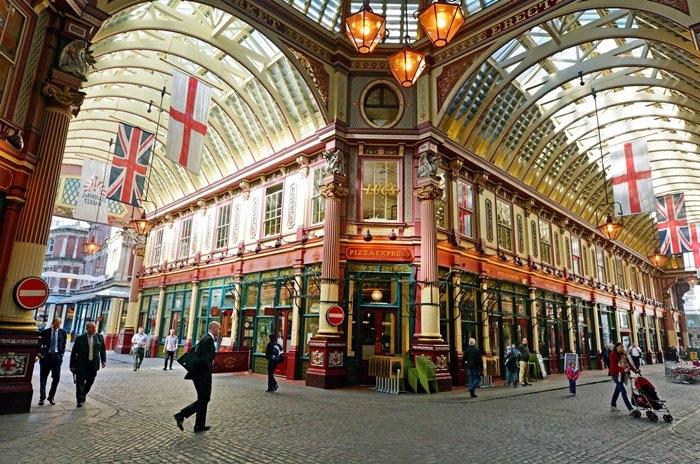UK wine imports experience volume reduction but increase in value by over 20% in 2022
UK breaks 12-year record
2023-06-16

In a surprising turn of events, the United Kingdom, known for its love of wine, witnessed a decrease in the volume of imported wine in 2022. However, despite this decline, the value of wine imports surged by an impressive 20.7%, surpassing the £4 billion mark for the first time. These developments shed light on shifting consumer preferences and the resilience of the UK wine market in the face of challenges posed by Brexit and the ongoing COVID-19 pandemic.
According to data from the British customs authority, the UK experienced a 1.6% reduction in the volume of imported wine during the year 2022. With a total of 1.2992 billion liters, the country surpassed the milestone of 1.3 billion liters after 12 years, marking a notable difference from the 1.415 billion liters recorded in 2020.
The previous year was characterized by increased wine purchases in the UK as a precautionary measure against potential import difficulties arising from Brexit and amidst the COVID-19 pandemic. Although the quantity of imported wine decreased in 2022, the value of these imports witnessed a significant 20.7% increase, reaching nearly £4.077 billion. This marks the first time that the UK has surpassed the £4 billion mark in wine imports. The average price also showed a substantial increase of 22.7%, reaching £3.14 per liter, the highest to date.
Market trends in the British wine industry throughout the 21st century indicate that wine imports have grown at a higher Compound Annual Growth Rate (CAGR) in value (+4.2%) than in volume (+1.7%). This evolution is primarily attributed to a remarkable increase in the average price, which rose from £1.85 per liter in the year 2000 to £3.14 in 2022.
Over the past 22 years, imports have grown from 896 million to 1.299 billion liters and from £1.662 billion to £4.077 billion. By the end of 2022, the UK positioned itself as the third-largest wine importer in terms of volume, following the United States and Germany, and the second-largest in terms of value, surpassed only by the United States.
Although all types of wines experienced growth in terms of value, packaged wines and, to a lesser extent, sparkling wines witnessed a decline in volume. On the other hand, bag-in-box wines, a more affordable option, experienced a considerable surge in purchases. Throughout the century, sparkling and bulk wines have gained market share over packaged wines, which have historically been the most imported variety.
In 2022, the UK invested more than ever in wines from France, Italy, and Spain. Italy demonstrated significant growth in volume, solidifying its leadership position, although still trailing behind the value of French wines. Meanwhile, Spain concluded the year as the third-largest seller in value and the fourth-largest in volume, with an average price higher than that of countries such as Australia, Chile, the United States, South Africa, and Argentina.
Regarding different wine types, the UK increased its imports of white and rosé wines despite the overall decline in volume. Red wine, although still the most imported, experienced a decrease in both volume and value.
The demand for organic and biodynamic wines saw a significant increase, reflecting a growing global trend toward more sustainable and ecological products. Although still representing a small portion of the market, these types of wines are rapidly gaining ground in the UK.
Another noteworthy trend gaining momentum is the rise of high-end wines. Aligned with the increase in the average price of imported wine, imports of wines priced above £10 per liter demonstrated impressive growth in 2022, despite the economic impact of Brexit and the COVID-19 pandemic.
Interpreting these data suggests that British consumers are shifting their wine consumption habits. While the overall quantity of wine consumed may have slightly decreased, the quality of consumed wine appears to have improved, with a growing preference for high-end, organic, and biodynamic wines.
Regarding the impact of Brexit on the wine market, the figures indicate that the UK's departure from the European Union has had a noticeable yet more limited impact than initially anticipated. Despite the reduction in the quantity of imported wine, the increased value of these imports suggests that British consumers are willing to pay more for their wine, despite potential trade and logistical complications caused by Brexit.
Ultimately, it is crucial to highlight that the wine market in the United Kingdom is in a constant state of evolution, adapting to political, economic, and social changes. These trends provide valuable insights for wine producers, distributors, and retailers, who must remain vigilant to these changes to adapt their strategies and continue to meet the demands of the British consumers.
Founded in 2007, Vinetur® is a registered trademark of VGSC S.L. with a long history in the wine industry.
VGSC, S.L. with VAT number B70255591 is a spanish company legally registered in the Commercial Register of the city of Santiago de Compostela, with registration number: Bulletin 181, Reference 356049 in Volume 13, Page 107, Section 6, Sheet 45028, Entry 2.
Email: [email protected]
Headquarters and offices located in Vilagarcia de Arousa, Spain.